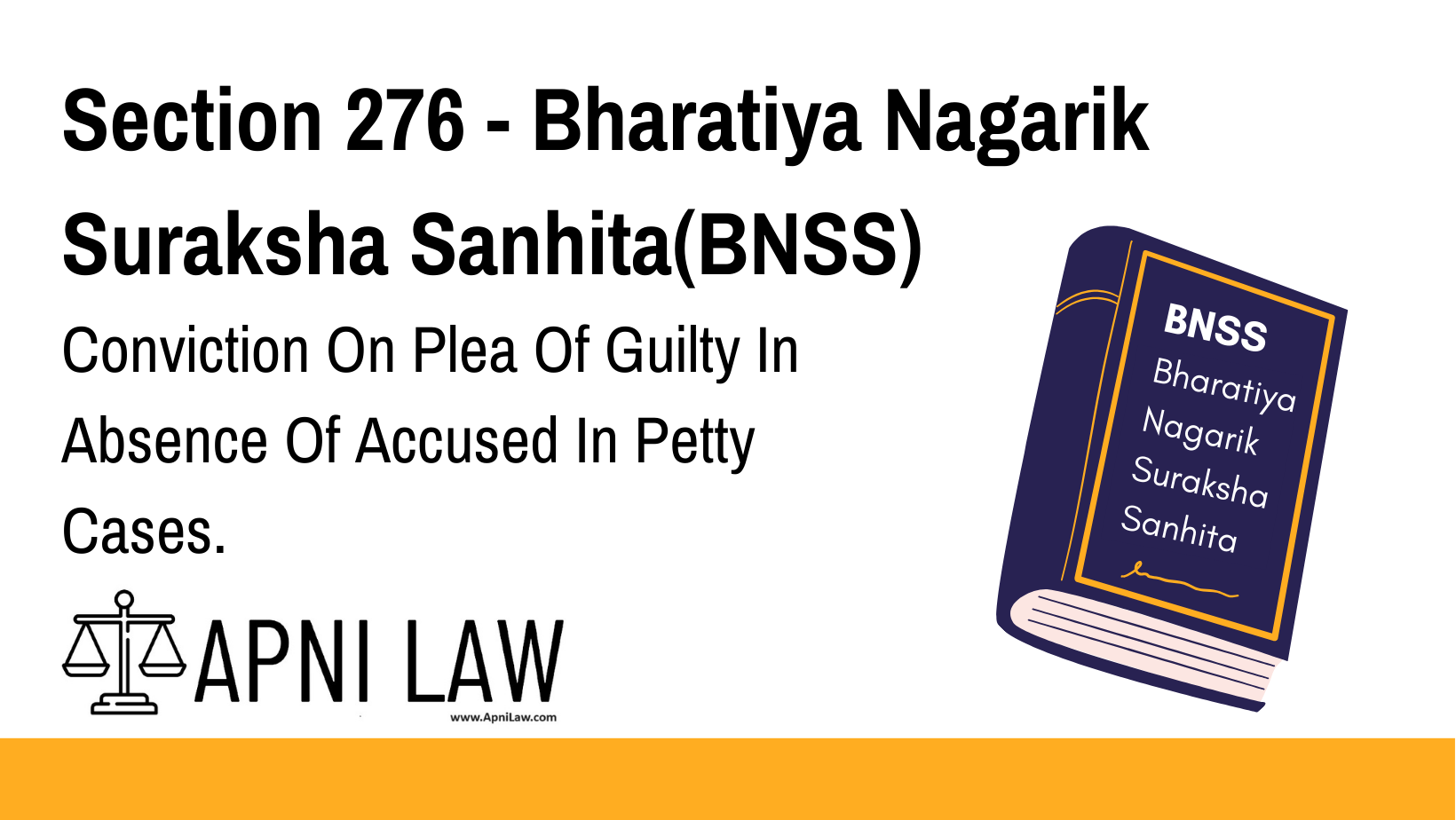Code: Section 276 BNSS
276.
(1) Where a summons has been issued under section 229 and the accused desires to plead guilty to the charge without appearing before the Magistrate, he shall transmit to the Magistrate, by post or by messenger, a letter containing his plea and also the amount of fine specified in the summons.
(2) The Magistrate may, in his discretion, convict the accused in his absence, on his plea of guilty and sentence him to pay the fine specified in the summons, and the amount transmitted by the accused shall be adjusted towards that fine, or where a pleader authorised by the accused in this behalf pleads guilty on behalf of the accused, the Magistrate shall record the plea as nearly as possible in the words used by the pleader and may, in his discretion, convict the accused on such plea and sentence him as aforesaid.
Explanation of Section 276 BNSS
Section 276 of the Bharatiya Nyaya Sanhita (BNSS) provides a mechanism for the accused to plead guilty without having to appear personally before the Magistrate. This section specifically outlines the procedure for cases where the accused wishes to accept the charge and settle the matter by paying a fine.
Key Provisions:
- Pleading Guilty Without Appearance:
The accused may plead guilty by sending a letter to the Magistrate with their plea and the amount of the fine specified in the summons. This option allows the accused to resolve the matter without physically attending court. - Conviction in Absence:
The Magistrate has the discretion to convict the accused in their absence if they submit a plea of guilty. The fine specified in the summons is to be paid by the accused, and the amount sent in advance will be credited towards the fine. - Plea by an Authorized Pleader:
If the accused is represented by a pleader, the pleader may also plead guilty on behalf of the accused. The Magistrate will record the plea as close to the words used by the pleader as possible, and the case can proceed with the same consequences as if the accused had pleaded guilty in person.
Illustration
Example 1: Accused Pleads Guilty by Letter
The accused receives a summons for a minor offence with a fine of ₹1,000. Instead of appearing in person, the accused sends a letter to the Magistrate along with the ₹1,000 fine. The Magistrate accepts the plea of guilty, convicts the accused in their absence, and adjusts the ₹1,000 payment against the fine.
Example 2: Authorized Pleader Pleads Guilty
The accused authorizes their lawyer to appear on their behalf. The lawyer pleads guilty to the charges, and the Magistrate records the plea in the words used by the lawyer. The accused is convicted and fined as per the summons.
Common Questions and Answers on Section 276 BNSS
1. Can an accused plead guilty without being physically present in court?
- Answer: Yes, under Section 276, the accused can plead guilty by sending a letter to the Magistrate along with the specified fine.
2. Can a pleader represent the accused and plead guilty on their behalf?
- Answer: Yes, a pleader authorized by the accused may plead guilty on their behalf, and the Magistrate will record the plea as nearly as possible in the words used by the pleader.
3. What happens to the fine paid by the accused?
- Answer: The fine amount sent by the accused is adjusted towards the fine specified in the summons if the accused is convicted.
Conclusion
Section 276 BNSS offers a streamlined procedure for accused individuals to resolve minor charges by pleading guilty without appearing in court, either by sending a letter or through an authorized pleader. It ensures that the process remains efficient while allowing for the payment of fines in lieu of physical appearance.








